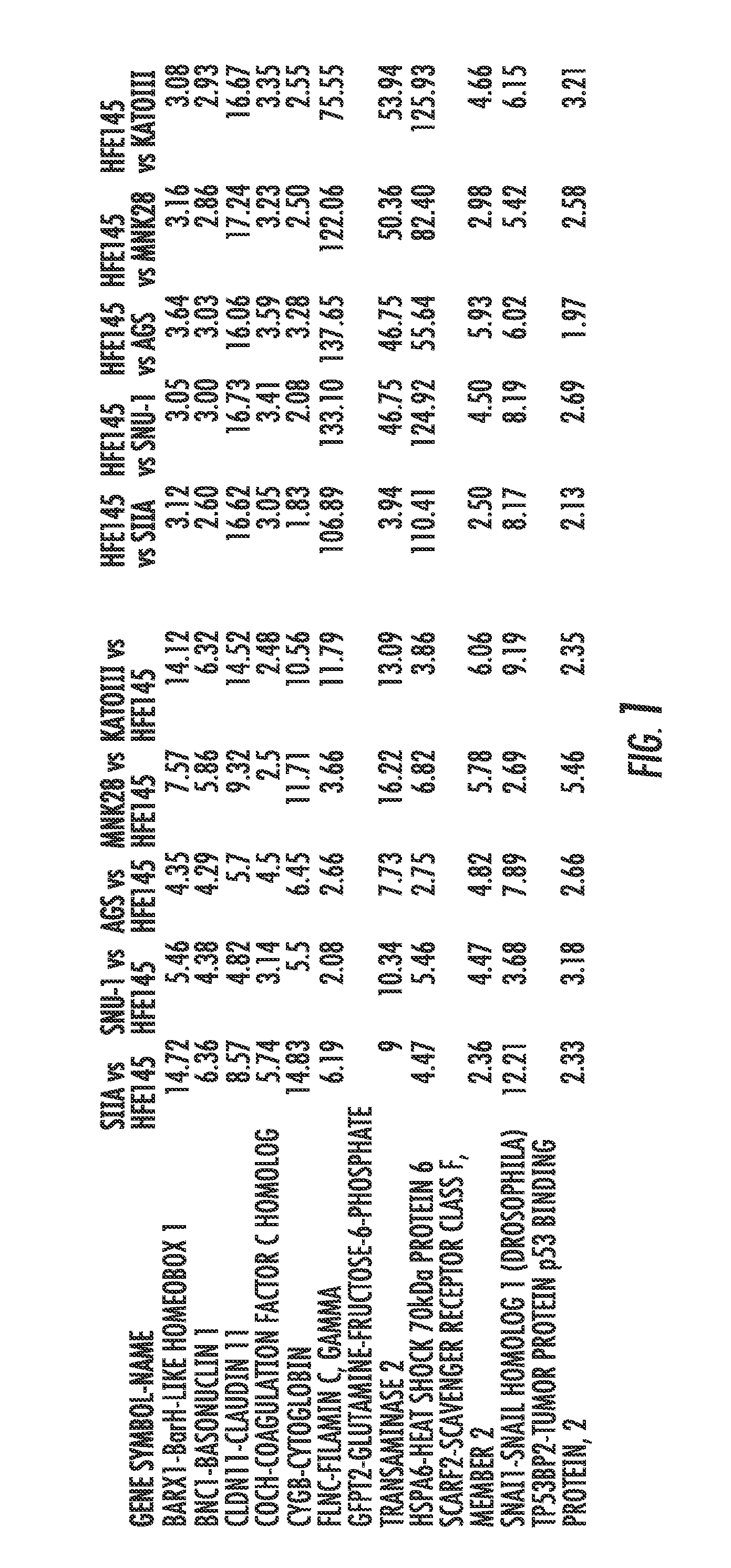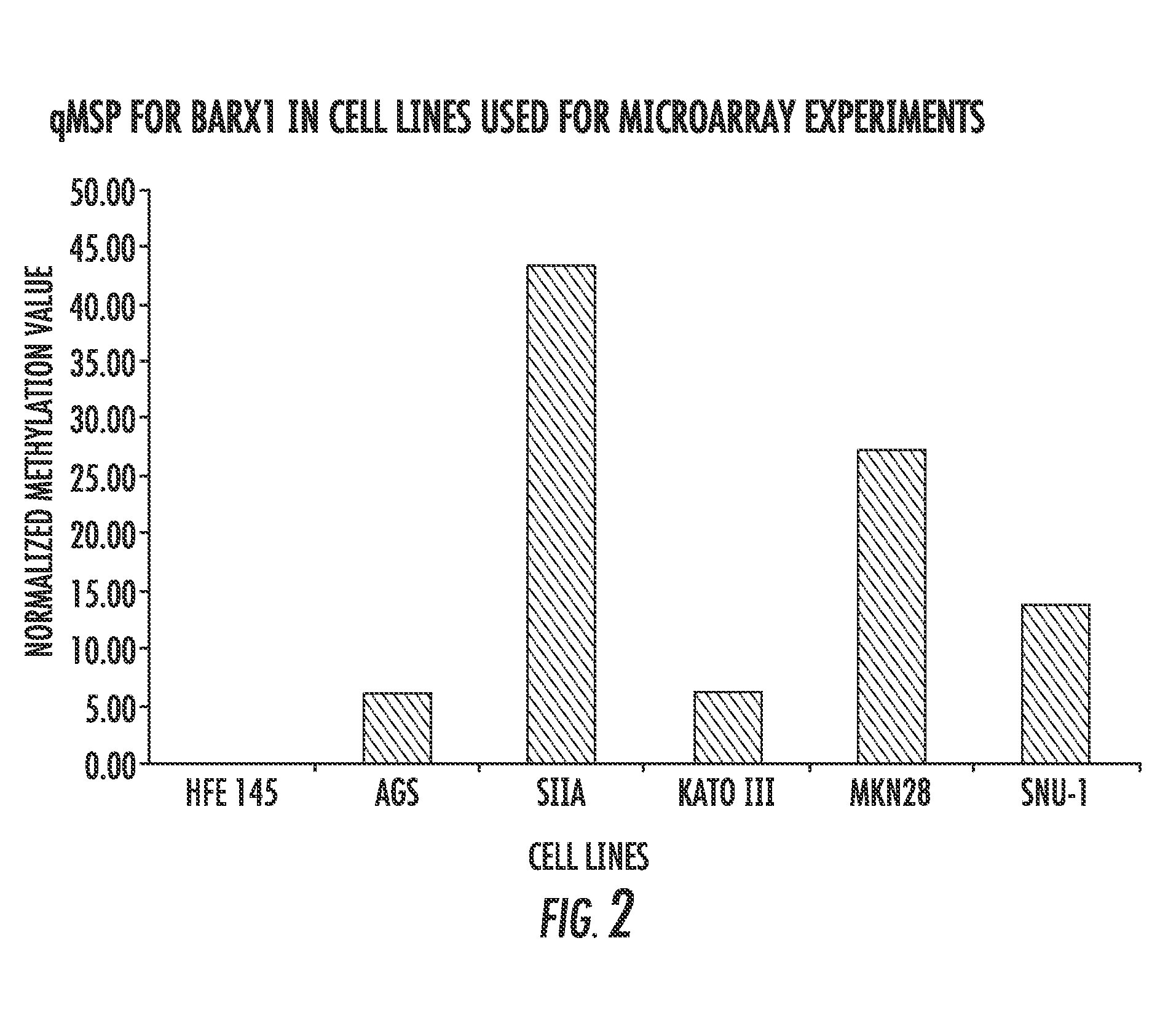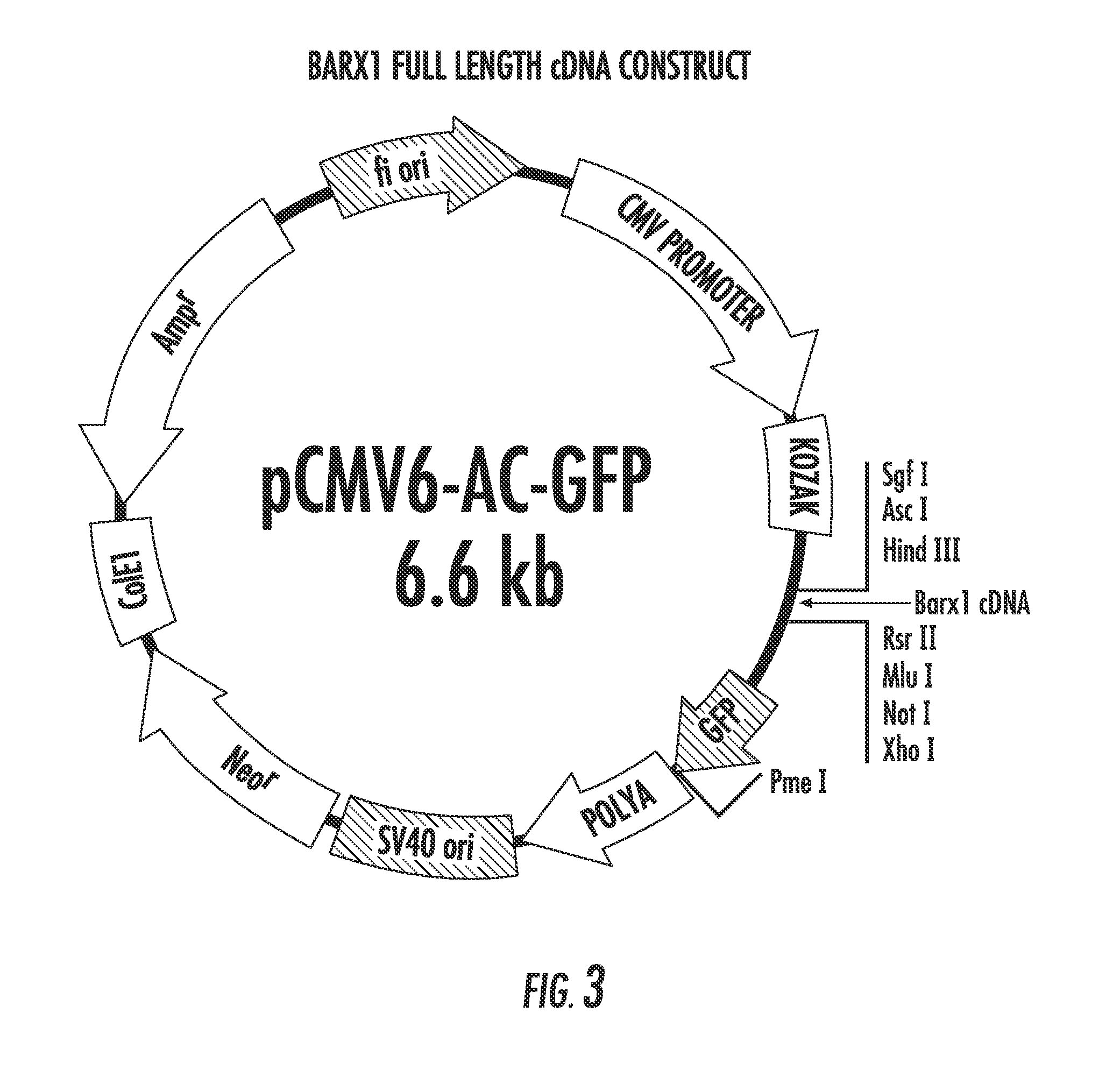Methods and compositions for diagnosing and treating gastric cancer
a gastric cancer and composition technology, applied in the field of gastric cancer, can solve the problems of incomplete understanding of the molecular pathogenesis of this disease and largely unexplored
- Summary
- Abstract
- Description
- Claims
- Application Information
AI Technical Summary
Benefits of technology
Problems solved by technology
Method used
Image
Examples
example 1
Identification of Candidate Tumor Suppressor Genes
[0107]The goal of the present example was to understand, and identify the molecular pathways important in the pathogenesis of GC, and in particular, to identify targets for its detection and therapy
[0108]In a specific aim, the present inventors sough to identify candidate TSGs that are hypermethylated in the promoter region, and coordinately downregulated in their mRNA expression in GC cells.
[0109]CpG island Methylation and mRNA Expression Microarrays.
[0110]Microarray-based CpG island methylation analysis (Agilent) and mRNA expression arrays (Illumina) were used. Immortalized normal gastric epithelial cell line HFE145 and gastric cancer cell lines SNU-1, zKATOIII, MKN28, SIIA and AGS were used. In Microarray-based CpG Island Methylation Analysis (MCAM), the methylated DNA fragments were first enriched. Then, the enriched methylated DNA fragments were used as probe for the CpG island oligonucleotide microarray.
[0111]To identify candid...
example 2
Characterizing a Homeobox Gene in Gastric Carcinogenesis
[0119]Barx1 is a homeobox gene selectively expressed in developing mesenchyme of the gut; it is hypermethylated and silenced in various gastric cancer cell lines. Gastric Cancer is a leading cause of cancer deaths on a global scale, having a five year survival rate below 20%. Using a system of gastric cancer cell lines and normalized cell lines, the present inventors have investigated Barx1 as a candidate Tumor Suppressor Gene (TSG). The data presented in FIGS. 11-16 provide strong evidence regarding the activity of Barx1 as a TSG in GC and lay foundation for further investigations into the downstream effects of this homeobox. The present results indicate that overexpression of Barx1 in gastric cell lines lacking endogenous expression of the gene results in a decrease in cell proliferation and rapid induction of apoptosis.
[0120]Cell Culture.
[0121]Three cell lines were used in this study. HFE145 (immortalized human gastric epith...
example 3
Characterizing CLDN11 in Gastric Neoplastic Progression
[0133]First, we tested our hypothesis that the CLDN11 promoter is hypermethylated in primary gastric cancers, and that this methylation correlates inversely with CLDN11 mRNA expression. Genomic DNAs were obtained from 36 clinical specimens, comprising 18 gastric cancers (GC) and 18 paired noncancerous mucosal normal stomach (NS) tissues. CLDN11 promoter methylation levels in these samples were analyzed using quantitative real-time methylation-specific PCR (qMSP). FIG. 17A displays the normalized methylation value (NMV), i.e., the ratio of the CLDN11 methylation value in each specimen to that of a fully methylated control DNA. These results demonstrate that CLDN11 NMVs were significantly higher in GC specimens than in their matching NS tissues (P<0.001). To assess whether CLDN11 promoter hypermethylation in GCs was associated with silencing of CLDN11 expression, CLDN11 mRNA levels were measured using quantitative real-time (qRT-P...
PUM
| Property | Measurement | Unit |
|---|---|---|
| Chemotherapeutic properties | aaaaa | aaaaa |
Abstract
Description
Claims
Application Information
 Login to View More
Login to View More - R&D
- Intellectual Property
- Life Sciences
- Materials
- Tech Scout
- Unparalleled Data Quality
- Higher Quality Content
- 60% Fewer Hallucinations
Browse by: Latest US Patents, China's latest patents, Technical Efficacy Thesaurus, Application Domain, Technology Topic, Popular Technical Reports.
© 2025 PatSnap. All rights reserved.Legal|Privacy policy|Modern Slavery Act Transparency Statement|Sitemap|About US| Contact US: help@patsnap.com



